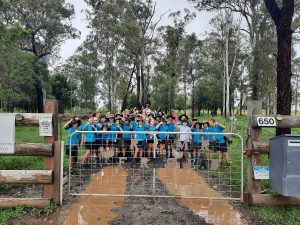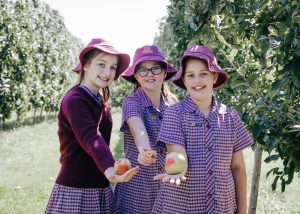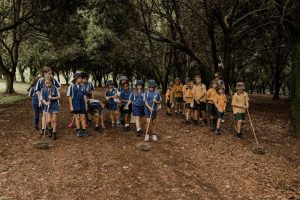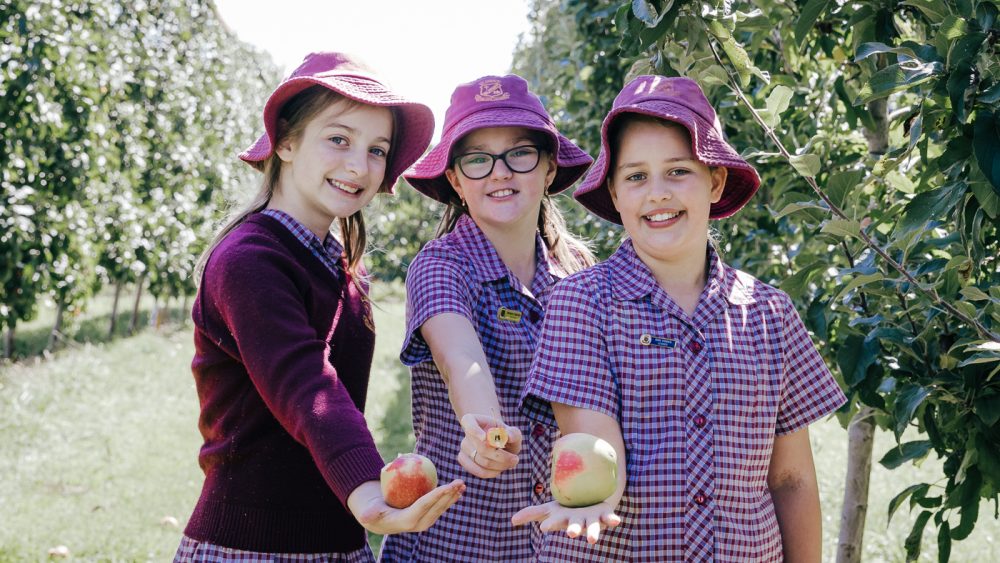More than 900 students from 19 primary schools in NSW have taken part in the Kids to Farms project and more funding is available for terms three and four.

Students from St Ambrose Primary School in Pottsville at a fun day out on farm Gracemere Farmstead near Casino
The Kids to Farms project is an initiative that brings the farmgate closer to the classroom, teaching children about common farm practices and processes.
It also helps simplify how farm produce gets from paddock to supermarket shelf – knowledge that is more in demand following major disruptions to supply chains over COVID-19.
Over the past year NSW Farmers has been delivering the Kids to Farms program, which has allowed primary school students from all corners of the state to get a taste of farming and learn more about where their food and fibre comes from.
More than $20,000 has been awarded to NSW primary schools for excursions, thanks to funding from the Department of Agriculture, Water and Environment.

Students from St Josephs’ Catholic School Blayney at Biteriot Orchard near Orange. (Image: Megan Rutherford Photography)
More than 900 students from 19 primary schools have benefited from this funding, with schools from the north to south coast and western NSW enjoying farm visits or classroom ‘incursions’ to date.
NSW Young Farmers committee member and teacher Charlotte Groves said more funding is available for terms three and four.
“The program offers significant flexibility and adaptability to suit teachers’ needs,” Charlotte said.
“If an excursion isn’t possible, Kids to Farms can connect schools with virtual or in-person farmer visits to classrooms.”

Dunoon Public School and Albert Park Public School students learned how macadamias are harvested at NSW DPI’s research farm at Wollongbar.
Since the program’s commencement in March 2021, over 2500 students have connected with agriculture via Kids to Farms resource kits, virtual visits during lockdown, in-person visits, workshops, and excursions.
“Kids to Farms is built on the ethos of “2 by 12”, or two farm-related experiences by the age of 12.
With fewer children growing up on farms of having a family connection to farming, initiatives such as Kids to Farms play a key role in bridging the widening gap between city and country.”
“All Kids to Farms opportunities are tailored to the classroom syllabus. With funding available to access this great initiative, it’s a no-brainer for teachers in terms three and four.”
Head to https://kidstofarms.com.au/ for more information and to apply for funding.







Comments are closed.